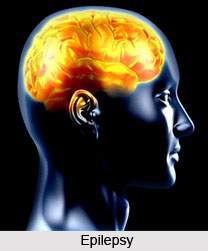 Symptoms of epilepsy provide the early signs to ensure preventive measures in order to avoid further damage. Epilepsy is a type of disorder that is accompanied with almost any type of behaviour that happens repetitively. This recurrence can be represented as seizures. Epilepsy is associated with different types of seizures. The common Symptoms of epilepsy include auras, generalized seizures (grand mal seizures), partial seizures, absence seizures. However, according to researches, many people suffering from the disorder have no symptoms between seizures and thus lead normal lives. Epilepsy exists in varied kinds and each kind has its own set of symptoms too. Nevertheless, the main cause of epilepsy includes a problem in communication between the nerve cells in the brain.
Symptoms of epilepsy provide the early signs to ensure preventive measures in order to avoid further damage. Epilepsy is a type of disorder that is accompanied with almost any type of behaviour that happens repetitively. This recurrence can be represented as seizures. Epilepsy is associated with different types of seizures. The common Symptoms of epilepsy include auras, generalized seizures (grand mal seizures), partial seizures, absence seizures. However, according to researches, many people suffering from the disorder have no symptoms between seizures and thus lead normal lives. Epilepsy exists in varied kinds and each kind has its own set of symptoms too. Nevertheless, the main cause of epilepsy includes a problem in communication between the nerve cells in the brain.
The function of the brain normally includes communication among the cells by sending tiny electrical signals back and forth. In an epileptic person, the signals from one group of nerve cells occasionally become too strong, and overpower neighbouring parts of the brain. Furthermore, this sudden, excessive electrical discharge can be regarded as the basic symptom of epilepsy. This symptom is called an epileptic seizure or convulsion. Furthermore, these seizures or convulsions occur in an individual for numerous reasons such as head injury, drug overdose, high fever as well as renal failure.
In a seizure, it is observed that an aura is usually the first symptom experienced. Aura can occur just prior the occurrence of the seizure or as much as several hours before it strikes. Aura consists of an impression of smelling unpleasant odours or hearing peculiar sounds, distorted vision, or an odd bodily sensation, particularly in the stomach. In the generalised seizures the whole brain is involved. The partial seizures can also become generalized seizure. Generalized seizure is further categorized into absence seizure, Tonic-clonic seizures, Myoclonic seizures, Atonic seizures, Tonic seizures.
Absence seizure is also known as `Petit mal` or little sickness. In the childhood when Epilepsy occurs it does not usually persist till the late adolescence. In the petit mal the symptoms of epilepsy include staring blankly around for a few seconds and unawareness of happenings around. A slight jerking movement of the head or an arm is accompanied and it is different from the symptoms of `grand mal` or Tonic-clonic seizures. Children also show the symptom of breath holding spells. This seizure occurs in toddlers and is related to minor injury. Breath holding spells can be a result of an emotional response too. The child appears very pale during the whole episode.
The most common symptom of epilepsy of grand mal includes dramatic seizure. The person falls to the ground unconscious and the entire body stiffens. It twitches or jerks uncontrollably. This seizure lasts last for several minutes and is usually followed by a period of deep sleep or mental confusion. Syncope or fainting is also another major symptom of epilepsy. Sudden emotional stress, severe pain, sudden standing up or prolonged standing, are the common causes which may lead to syncope.
Among the other types of epilepsy, focal epilepsy and temporal lobe epilepsy are also common. Symptoms of epilepsy in the focal epilepsy type include uncontrollable twitching of a small part of the body, and the twitch gradually spreads. This may eventually led to generalized seizure of the entire body. Person suffering from temporal lobe epilepsy is likely to have an aura lasting only a few seconds and there is a sudden change of character is seen. Thus the basic symptoms of epilepsy include a brief and abnormal phase of behaviour and differ according to the types.




